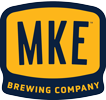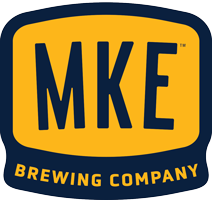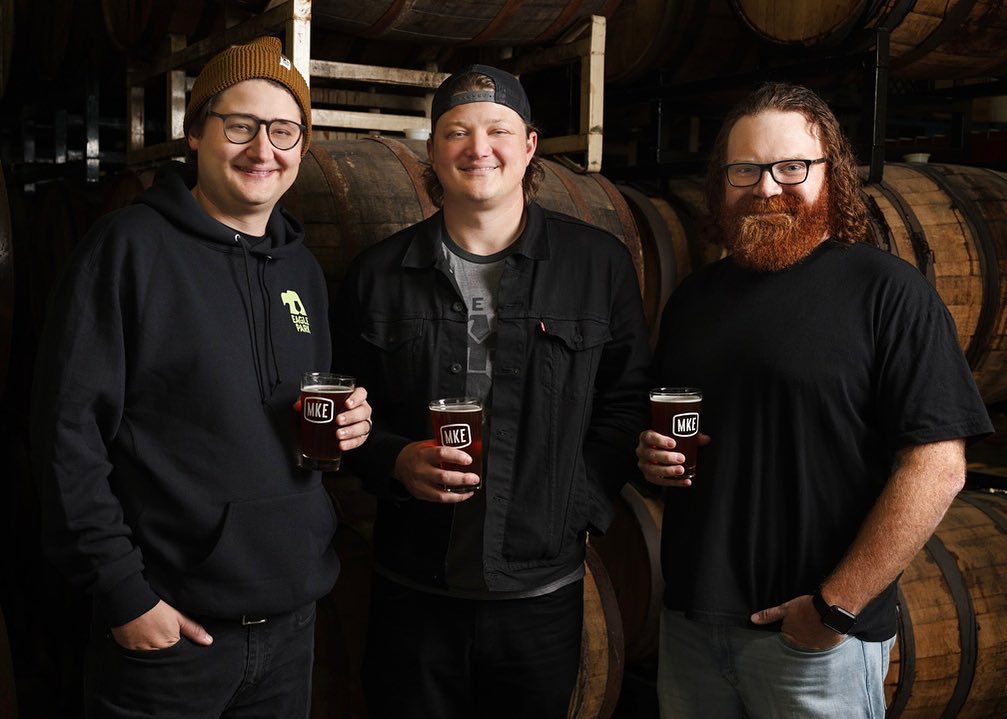In October 1997, when Milwaukee was still a town built on Lager, Milwaukee Brewing Company brewed its first beer at the Milwaukee Ale House, a brewpub located in the heart of the city. Over the decades following that first fateful brew, Milwaukee Brewing Company grew to become the iconic craft brewery it is today all while staying true to its founding principles of crafting and creating beers using the best local ingredients and suppliers in a sustainable, creative, and innovative environment. .
A quarter of a century later, the bright torch of MKE was passed on to the founders of Eagle Park Brewing, Max & Jackson Borgardt and Jake Schinker, who took the helm of the brewery that inspired them to start their own brewery just 5 years prior. They now carry on the rich tradition of Milwaukee Brewing Company ensuring it remains locally owned and operated by those who are dedicated to crafting the highest quality of beers fit for sharing their name with a city steeped in brewing tradition like no other.
At Milwaukee Brewing Company, we believe that our journey has only just begun. As we reflect on our rich history and the milestones that have brought us to where we are today, we eagerly embrace the future with passion and determination. We are grateful for the journey that has led us here, and we look forward to the opportunities that lie ahead. With a spirit of humility and gratitude, we will continue to learn, grow, and evolve as a brewery, always striving to be a source of pride for our community and a beacon of quality in the craft beer world.
We are committed to pushing the boundaries of brewing, continuously experimenting with unique flavors, and crafting beers that excite and inspire our customers. Our dedicated team of brewers will keep exploring innovative techniques, using the finest ingredients, and honing their craft to deliver unparalleled experiences with every sip.
Thank you for being a part of our story. Together, we raise our glasses to the future, full of exciting possibilities and the joy of crafting exceptional beers for years to come.


